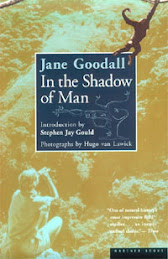
The Diving Bell and the Butterfly: A Memoir of Life in Death
by Jean-Dominique Bauby
The Diving Bell and the Butterfly was a delightful, quick read that I would reccommend to anyone. It is an autobiography, but it's more than just an autobiography. French Elle editor Jean-Dominique Bauby suffered a stroke at the age of 43, leaving him with locked-in syndrome, in which he was paralyzed everywhere except for his eyelids. He likens this to being trapped under a diving bell. He learns, however, to escape his prison by letting his mind travel wherever he chooses to go: "My diving bell becomes less oppressive, and my mind takes flight like a butterfly." Bauby weaves his daydreams and memories together with his day-to-day therapy, visits from friends and family, and the process of writing his memoir, often giving a bitersweet contrast of joy and frustration, of companionship and isolation. Bauby tells each tale, mundane or extrordionary, with rich imagery and wit that draws you in to his every word. Take, for example, this passage where he explains how he communicates:
ESARINTULOMDPCFB
VHGJQZYXKW
The jumbled appearence of my chorus line stems not from chance but from cunning calculation. More than an alphabet, it is a hit parade in which each letter is placed according to the frequency of its use in the French language. That is why E dances proudly out in front, while E labors to hold on to last place. B resents being pushed back next to V, and haughty J-which begins so many sentences in French-is amazed to find itself so near the rear of the pack. Roly-poly G is annoyed to have to trade places with H, while T and U, the tender components of tu, rejoice that they have not ben separated. All this reshuffling has a purpose: to make it easier for those who wish to communicate with me.
It is with this voice that Bauby draws us into his life: into his memories, into the hospital where there are those who are kind and those who wish to forget him, and into his effusive imagination. His story ends as frankly as it begins, and left me with the same bittersweetness that peppers this memoir, knowing that its author died just two days after his book was published in France.


